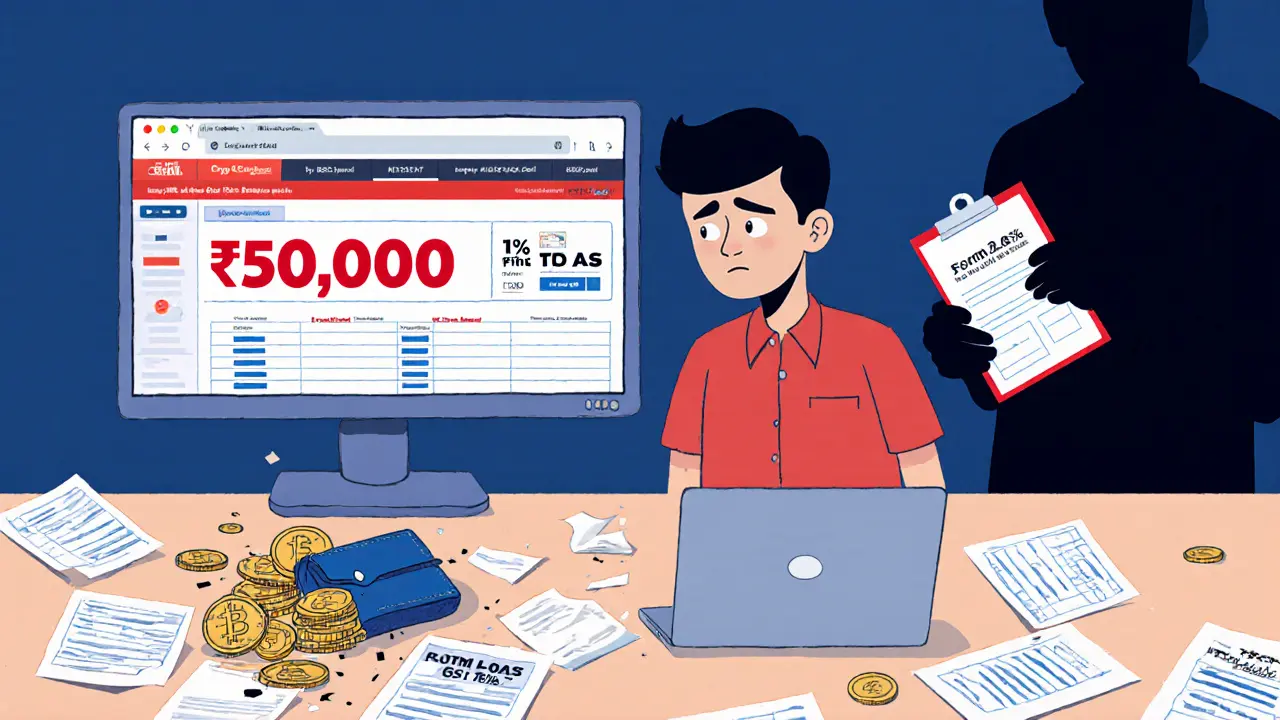Crypto TDS Threshold: What It Is and How It Affects Your Trades
When you trade cryptocurrency, you might not realize that a crypto TDS threshold, a minimum trading value above which tax is automatically deducted at source by exchanges is already being enforced in some countries. This isn’t about capital gains—it’s about a tax being pulled from your trade before you even see the money. In India, for example, any crypto trade over ₹50,000 in a year triggers a 1% TDS (Tax Deducted at Source), regardless of profit. It’s not a tax on your earnings—it’s a tax on your movement. And it’s spreading. Countries watching India’s move are considering similar rules to track crypto activity without waiting for annual filings.
This TDS crypto, a mandatory withholding mechanism applied by regulated exchanges forces exchanges to act as tax collectors. If you’re trading on Binance, CoinDCX, or any platform registered in a jurisdiction with TDS rules, they’re required to take a cut before your trade settles. That means your buy or sell order might show $1,000, but you only receive $990. The rest goes to the government. This system targets high-volume traders and makes it harder to hide activity. It also creates confusion—many think TDS is the full tax bill, but it’s just a down payment. You still report your actual gains or losses later. The real issue? If you use no-KYC exchanges or P2P platforms, you’re not protected by TDS, but you’re also not compliant. That’s a risky gap.
What’s interesting is how this ties into broader crypto tax, the legal obligation to report cryptocurrency income to tax authorities systems. Countries like Vietnam and Nigeria are moving toward transaction-level tracking, not just annual reporting. The crypto compliance, adherence to government rules on reporting, licensing, and tax withholding for digital assets trend is clear: regulators want real-time visibility. You can’t avoid it by using a VPN or switching wallets. If you’re trading above the threshold, the system is watching. The posts below cover how this plays out in real markets—from India’s 1% TDS to how traders in banking-restricted countries navigate tax traps, how scams exploit confusion around TDS, and why some platforms falsely claim they’re exempt. You’ll find guides on what to track, how to adjust your trading strategy, and what happens if you ignore the rules. This isn’t theoretical. It’s happening now, and your next trade might trigger it.

1% TDS on Crypto Transactions in India Explained: What You Need to Know in 2025
India's 1% TDS on crypto transactions automatically deducts tax on every trade, sale, or spend. Learn how it works, who it affects, and what you need to do in 2025 to stay compliant.
© 2026. All rights reserved.